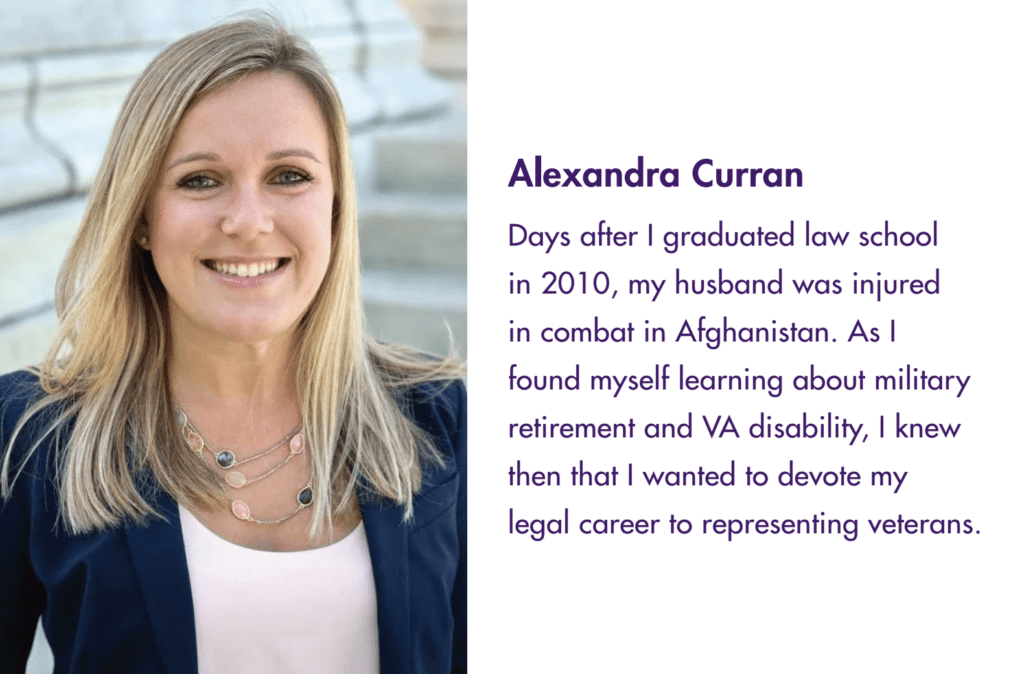8 Reasons to Choose Attig | Curran |Steel to handle your Veterans Court appeals.

If you are an agent, VSO, or attorney, you have a tough decision under AMA when the BVA issues a denial of your client's benefits.
On one hand, you can file a supplemental claim.
On the other, you can file an appeal to the US Court of Appeals for Veterans Claims (CAVC).
Which strategy you choose ultimately depends on the needs of your client's appeal.
If you still need factual development - if there is truly a factual gap in the record that the BVA pointed out - then supplemental claims are likely to be a strong approach.
But an increasingly large number of BVA decisions are denying veterans claims and appeals for a different reason: the BVA's wrong, wrong-headed, and in many cases just "wacky" interpretation or application of a statute or regulation.
In this scenario, it may be time to consider appealing to the US Court of Appeals for Veterans Claims.
Attig | Curran | Steel is, at its core, a federal appellate law firm, and we would like to help you make that decision. If you choose to take the appeal to the Veterans Court, we would like you to consider asking us to represent you and your client.
Here are 8 Reasons to consider choosing Attig | Curran | Steel to handle your appeals to the Veterans Court and the Federal Circuit Court of Appeals.
#1: Attig | Curran | Steel is, at its core, a federal appellate law firm.
When the Appeals Modernization Act (AMA) went into law, things changed at the Court. Under the Legacy appeals system, practitioners used the Court to pry open the record and secure a remand that would allow them to put in new evidence to hopefully win the case. It was easy to get a remand - literally 70 - 80% of the appeals to the Court resulted in a remand and/or a reopened record.
Not so much any more.
With the advent of Supplemental Claims, you can no longer count on the Veterans Court to reopen the record to fix errors. You need a law firm that understands appellate law, and how to argue legal errors at the Veterans Court.
Attig | Curran | Steel is that type of firm: we have three attorneys who are working to become the best federal appellate advocates in the business, representing clients at the Veterans Court and the US Court of Appeals for the Federal Circuit.
From persuading the Federal Circuit to find that obesity can be a directly service-connected disability (and overturning decades of CAVC precedent to the contrary), to arguing for a more veteran-friendly interpretation of AMA statutes and regulations, our attorneys are working to shape the law to ensure that the BVA can no longer make absurd mistakes.
#2: Neither you nor your client ever pay a dime for our work.
Under the legacy system, not many practitioners worked at the Court - it was too hard to make a living earning the paltry EAJA fees the VA agreed to pay attorneys who proved the BVA erred.
We fought, and fight, to change that: our philosophy is that the VA must "feed the ox who treads the corn."
We have, and we are, forcing the VA to pay reasonable attorney fees to federal appellate lawyers at the Veterans Court and Federal Circuit.
What does this have to do with you?
If you hire our firm to represent your client at the Veterans Court, you won't pay us a penny. Nor will your client. In fact, they continue to be your client for all purposes but the Veterans Court appeal.
If we substantially prevail in the appeal, and secure you a remand or reversal of a BVA error, the VA will pay our attorney fees under the Equal Access to Justice Act (EAJA). And we are content with the fees the VA pays us.
If we substantially prevail in your Court appeal, we return your client and your case to you. You pay us nothing.
We'll even give you tips, pointers, and strategies to consider helping your client prevail when the case returns to the BVA.
#3: You get the expertise of a Federal Appellate law firm.
AMA didn't just change things at the AOJ and the BVA. It changed how things are happening at the Court, too.
When we realized this, before AMA, our attorneys committed themselves to the craft of learning appellate law. We constantly strive to become better writers. We put time into every case trying different approaches to framing the issue and the error to find a strategy that works best.
We are committed to the craft and practice of federal appellate law. Having an advocate like that in your corner on appeal to the Veterans Court could, in an AMA world, be the difference between a win and a loss for your client.
#4: We are not afraid to brief cases or seek reversal.
If you talk to advocates who practice at the Court, you will no doubt have heard how hard it is to get the CAVC to reverse findings of fact and conclusions of law that are clearly erroneous.
And those advocates are not wrong: the Veterans Court has a lot of power that it could unleash to change the VA system for the better - and to change the quality of work at the BVA - but, as near as I can tell, it keeps that power locked in a salt mine in Kentucky.
But that doesn't stop us.
We are not afraid to pursue reversals at the Veterans Court. Where the OGC and BVA are content to let claims churn in the BVA Hamster Wheel for decades, we are willing to pursue settlements (in lieu of remands) to help your client put an end to the endless fight with the VA.
#5: Record Review.
Advocates like you spend years - sometimes decades - making sure that the right evidence is in the record for your client.
The time to use that evidence is not just at the BVA, but also at the Veterans Court. Telling your client's story - telling an actual story - can change the trajectory of a case, and snatch victory from the jaws of defeat.
So the first thing we do when we get a case is we comb through the record.
We are looking to make sure that the VA has put everything in the claims file that should be, and we dispute the record when it is not.
But we do more than that. We comb through the record looking for the facts and evidence that allow us to tell your client's story.
We believe that your work is potent and powerful, and we intend to use your evidence - and all your hard work building the case - to persuade the Veterans Court that the BVA erred.
#6: Added Value.
We want you to succeed in your clients' claims and appeals.
So when you have a relationship with our firm, we offer you training and education. We do that in two ways.
First, when you are trying to come up with a strategy at the AOJ or BVA, we are available to help you work through that strategy, and won't charge a dime to help.
Second, we have monthly training events and email lists designed to keep you - attorneys and agents and VSOs - up to speed on changes in the law and changes in the way you practice at the BVA or AOJ.
#7: We promote you and your firm.
Attorney Chris Attig was among the first to become accredited by the VA back in 2007. Since then, tens of thousands of attorneys, agents, and VSOs have become accredited to represent veterans and their survivors.
Not all of them have stuck around, and not all who did stick around do good work.
When we find a firm, attorney, agent, or VSO who does good work at the AOJ and the BVA - firms like Hill & Ponton, and solos like Nic Simpson and Dax Lonetto - we want to help more veterans find and hire those firms and attorneys.
If we see that you are providing caring, effective, and efficient representation of veterans, we will do our best to introduce you to the veterans who need your help.
#8: You can focus on what you are best at.
There's an old saying that we all have a choice. We can be a jack of all trades, or a master of one. We want you to become the best AOJ and/or BVA attorney, agent, VSO, or advocate you can be.
You can't do that if you have to learn appellate law. You can't do that if you have to learn how to advocate in an appellate Court. You can't do that if you have to learn to deal with the VA's Office of General Counsel.
We don't particularly like the toxic world of advocacy at the Veterans Court. But we have years of experience navigating it.
At a recent conference, one OGC attorney told one of our partners that he dreads seeing cases with our firm's name on it; I know the cases he's worked, and in each of those cases, we made that attorney work - and he still lost.
Here's what attorney Matt Hill said about working with our firm:
“Attig | Curran |Steel has been a valuable resource for us.
We concentrate our practice on Agency work. We used to do our own appeals. With the frequent changes in law and the different mindset you need for brief writing, we decided to outsource our Court work.
Chris, Jennifer, Alexandra and their team have made the process of transferring BVA denials to their firm seamless. They handle the appeal from start to finish. They send the case back to us when it is completed. If they cannot handle the claim then they will tell us why not and what is missing.
Over the past several years, we have had tremendous success using Attig | Curran | Steel. Our clients have also appreciated the professionalism and courtesy that they have provided.”
The attorneys at Attig | Curran | Steel work hard at our craft to ensure that you have the BEST chance of winning your case for your clients.
Consider letting us use our Veterans Court and Federal Circuit experience to help your clients.
Please reach out if you would like to talk about building a relationship with your firm.
Contact Jennifer Steel or Alexandra Curran to discuss appeals to the Veterans Court.
Contact Chris Attig to discuss appeals to the Federal Circuit.

